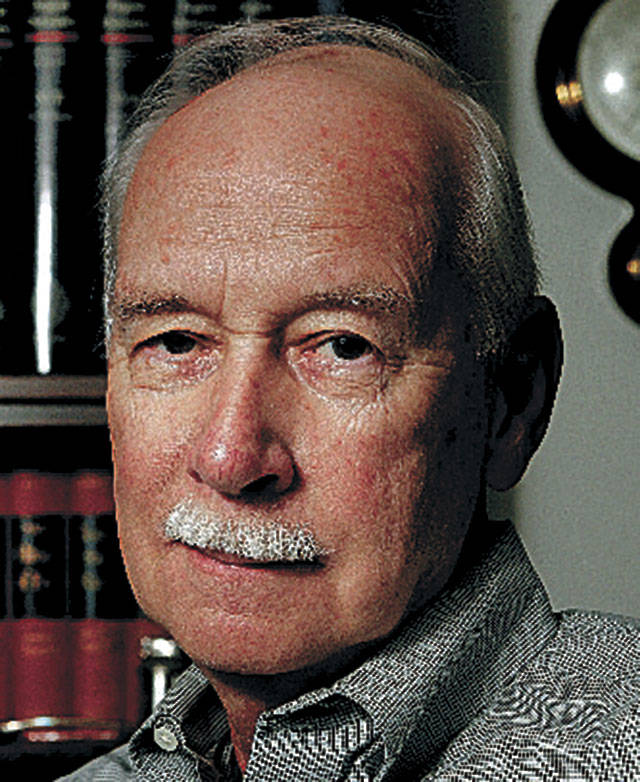A friend and former colleague of mine recently received a promotion and is now manager of a key customer area in a large investment firm. We both belong to the same networking site and the news of the promotion was accompanied by his picture. The photo showed him in his office, and included a graphic illustrating the idea that “the best bosses are humble bosses.”
The graphic was a reminder of Peter Drucker’s axiom: “Management is about responsibility, not authority.” Its fundamental truth has survived management fads, technology changes, economic fluctuations and demographic shifts to emerge intact and unchallenged.
There are many different ways to demonstrate that responsibility and the kinds of relationships that it forges. There is a scene written in “We Were Soldiers Once … and Young” that memorably illustrates both concepts, responsibility and humility.
The book’s author, an Associated Press reporter, describes a rest break during a full-pack Army hike. The new colonel in command of what would form a helicopter-borne combat group is observing the troops. He and his assistant come upon one platoon where a young lieutenant carefully checking the feet of a soldier for blisters.
Knowing there will not be time for him to check each man in his platoon, he is showing the sergeants how to do it effectively. And the colonel says to his adjutant that that is exactly the kind of leader he wants on their team.
Those two characteristics, responsibility and humility, are increasingly important for managers in today’s workplace. The lieutenant was giving up his rest break to make sure that his troops were all taken care of. Their needs came first, his came after that.
That is exactly the kind of leader we need in today’s workplace, too.
At its best, the hierarchical structure of businesses has lent a reassuring order to workers as well as to lower and middle management. In its efforts to adopt new technologies, that structure is being eliminated in favor of “self-directed teams” and similar approaches to eliminate lower- and middle-management jobs and their costs.
What businesses are finding out, though, is that teams might be able to get along and be productive without managers …but they can’t do it without leaders.
Yves Morieux, the director of The Boston Consulting Group’s Institute for Organization, has written a very interesting essay on the subject, “Companies Are Revolutionizing How People Work. Now They Need to Transform How Managers Manage.” He presents a sound argument that businesses can implement all sorts of new technology-driven management models “… but they risk missing the ‘spirit,’ including the invisible supports that actually make these innovations work.”
That spirit is called leadership, and business should recognize that it cannot come solely from the CEO and the corner-office crowd. It has to prevail in the trenches, too.
The U.S. military has learned this lesson well. Waves of new technology have transformed the character of land, sea and air combat, and the structure of the armed forces themselves. Yet one fact remains unchanged: what holds the thing together are the platoon leaders and the sergeants, the junior officers and the chiefs.
Morieux writes that managers “need to stop thinking of themselves as the master designers of hardwired organizational structures, processes, rules and procedures. Instead, they need to become the everyday orchestrators of a flexible and dynamic behavioral system ….”
It isn’t going to be easy to make this change. To start with, the top management of businesses has invested in the technology in no small part because it promised to take a layer of management out of the picture. The result was supposed to be lowered overhead costs and “instant productivity.”
In many business minds, trench-level and middle management had become obstacles to productivity and were getting in the way of workers’ initiative in using the new technological development to their full potential. Now, it is being told that in order to get the productivity promised by the new technologies it has to remake its managers into leaders instead of dumping them.
It will be very interesting to see how business and business schools respond to this challenge. The distinction between leadership and management is not one that has received a lot of emphasis in either quarter.
The good news, though, is that team-level leadership will fit effectively into the hierarchical structure that provides comfort and reassurance to both workers and top management. As a result, it might provide the productivity boost without the chaos and uneasiness so often associated with self-directed teams.
It won’t be easy, but the firms that figure out how best to get team-level leadership will find themselves the global leaders, and competitive winners, in our rapidly changing technological world.
Talk to us
> Give us your news tips.
> Send us a letter to the editor.
> More Herald contact information.

























